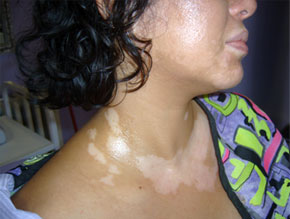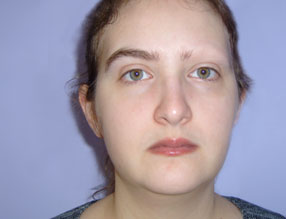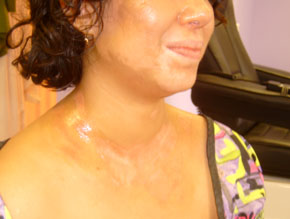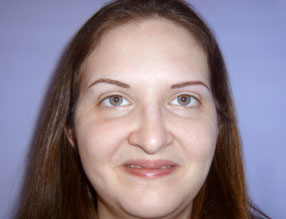Permanent cosmetics have been around since the early 20th century as an alternative to daily makeup. Recently its techniques and uses have expanded to the field of paramedical esthetics. Permanent make up is also used in conjunction with surgery, laser skin care and fillers to optimize a patient’s esthetics. As well these techniques can dramatically help patients with burns, scars, Alopecia, Vitiligo, and birthmarks. Finally there is a role for these techniques for patients allergic to conventional cosmetics.
Esthetic pigmentation is most commonly done for eyeliner, lips, and eye brows. Reconstructive pigmentation is generally done to improve color match of areas of abnormal pigment and the surrounding skin. Applications include treatment of skin hypo pigmentation from vitiligo and hyper pigmentation from scars. Other areas of use include reconstruction of areola after breast reconstructive surgery. As well this technique can add pigmentation to scalp and brows in patients with Alopecia.
The risk of this procedure is related to the permanency of the product. The product is a high grade tattoo which will last forever possibly fading slightly over years. If applied poorly it may be difficult to correct the result. If a patient has a less than satisfactory result treatment options would include further pigmentation (camouflaging), laser pigment removal. dermabrasion. Removal can be difficult and camouflage is generally the preferred method of correcting problem cases.
Sidebar
For lip augmentation some patients not only lack volume of there lips but also lack color definition. In such cases volume can be added to the lips with fillers, or lip implants such as Advanta. Once ideal volume is achieved pigmentation can be added to optimize the lip color and definition. If overdone these results can appear artificial. It is important to see someone with significant experience with these techniques to get the best results possible.
Quiz Can you name certain medical conditions which make permanent makeup an ideal solution?
Answer
Permanent pigmentation can be useful for women who wish to wear makeup, but cannot apply it easily because they have allergic reactions to makeup materials, have vision deficits, poor dexterity of their hands due to conditions such as arthritis, stroke or Parkinsons.
Dr. Philip Solomon, M.D., F.R.C.S.(C) completed his medical school training at the University of Toronto and is Board Certified by the American Board of Facial Plastic and Reconstructive Surgery and the Royal College of Physicians and Surgeons of Canada. Dr. Solomon runs his own Toronto practice and is on surgical staff at York Central, St Michael’s and Etobicoke General Hospitals. He is also on the teaching faculty of the University of Toronto.




